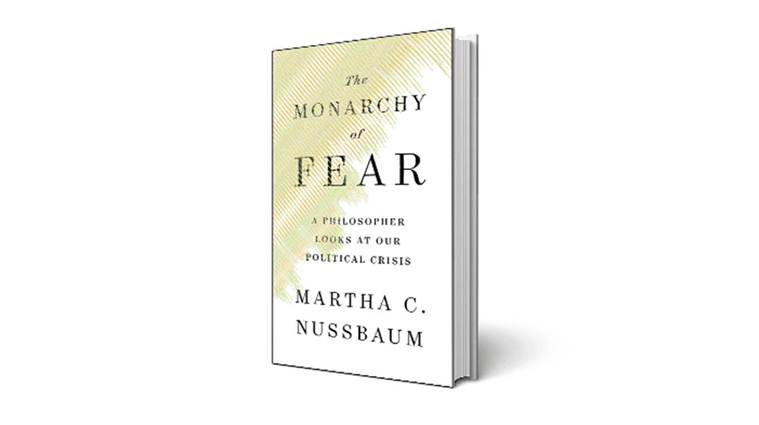Rage Done Right
An American treatise on the right kind of emotions that are needed to push back against the injustice of the times

The Monarchy of Fear is a look at Trump’s America from a space of anger, envy, fear and disgust at a country sharply divided.
Title: The Monarchy of Fear: A Philosopher Looks at Our Political Crisis
Author: Martha C Nussbaum
Publisher: Simon & Schuster
Pages: 272
Price: Rs 1970
Author: Martha C Nussbaum
Publisher: Simon & Schuster
Pages: 272
Price: Rs 1970
Nussbaum is best quoted on Nussbaum. This American philosopher, speaking on her most recent work, The Monarchy of Fear, commented in an interview three months ago on how she came to structure this book: she realised, while giving a lecture recently, “I really did want to reach out to all kinds of people, so I didn’t include contemporary political references. Afterwards, I got letters saying, ‘It’s so refreshing to hear something that’s not just Trump Trump Trump.’ The favourable reaction to that strategy made me write to my publisher and say, I do want to write the book that way. I decided that, aside from the misogyny chapter where I do use political examples, I wanted to go with that good reaction. People like to have something that’s above the fray… (TIME magazine, July 19, 2018)”
So Nussbaum launches, in her deceptively slim volume, on the emotions that underlie dominant political trends in the USA today, with the help of examples from ancient history and distant lands, like India’s caste system and Rabindranath Tagore’s Gora. This is a book that has grown out of Nussbaum’s feelings while she was in Kyoto, Japan, to collect an award in November 2016, which was when Donald Trump won the presidency.
The Monarchy of Fear is a look at Trump’s America and at a country sharply divided. The dominant emotions, of anger, envy, fear and disgust, which Nussbaum identifies, are distilled into political expression. The Monarchy of Fear also offers prescriptions — it is a valuable guide to good and sound political actions, necessary to alleviate primal fears and negativity.
Public intellectuals that speak to their times, and of them, do so by drawing connections that are temporal, across regions, classes and communities. Nussbaum dives into the most difficult connections, those of an intimate nature, and their connect to bad and good politics.
A fine section in the book recounts FD Roosevelt’s take on how the welfare state in the US was rooted in the idea that basic fears of citizens must be addressed. She quotes Roosevelt’s inaugural address: “The only thing we have to fear is fear itself”. The best antidote to the painful fear he saw was “to construct a basic social safety net that would make people be able to rely on a social minimum in terms of hardship.”
The last chapter is the most exhilarating, titled ‘Hope, Love, Vision’. Nussabaum cannot be accused of looking at divisions — social and political — and just exacerbating the crisis of a divided nation. What she does is difficult, constructive and original, by starting a journey towards political healing, never losing sight of what starts the fires of fear or fury. Her exhorting of the right kind of anger, the type that urges a call to action, is one which she argues is vital if nations and times are to be rescued.
Without adopting an overtly moral tone, which all too easily seeps into distinctions drawn between concepts like jealousy and envy or justice and retribution, the author segregates concepts clearly.
At a time when, in political discussions, emotions are lazily invoked to be dismissed in broad-brush strokes as “angry”, “furious” or “outraged” electorates, Nussbaum doubles down and picks up threads calmly; both understanding and advocating what kind of emotion to nurse, which one to channel and which one to seriously introspect on, with a view to overcoming it.
This is no self-help book for the USA as it reconfigures the Blue and the Red, with a volatile president surrounded by an ever-changing cast of characters. It is much more than that. It has important and incisive things to teach all modern democracies that would care to learn from it.
By sweeping through history and psychology and also physiology – for example, by going into how bodily fluids invoke disdain and disgust — Nussbaum constructs a complex but clear idea of what makes for ideas about women, the very different ideas of sexism and misogyny, and, how that might be fuelling anxieties we see reflected in politics.
But in the ultimate analysis, The Monarchy of Fear is a case for passion. It is a manual for why one must shed “passive injustice” and detachment, and, instead, actively partake in the task for making this a much better world.






















No hay comentarios:
Publicar un comentario